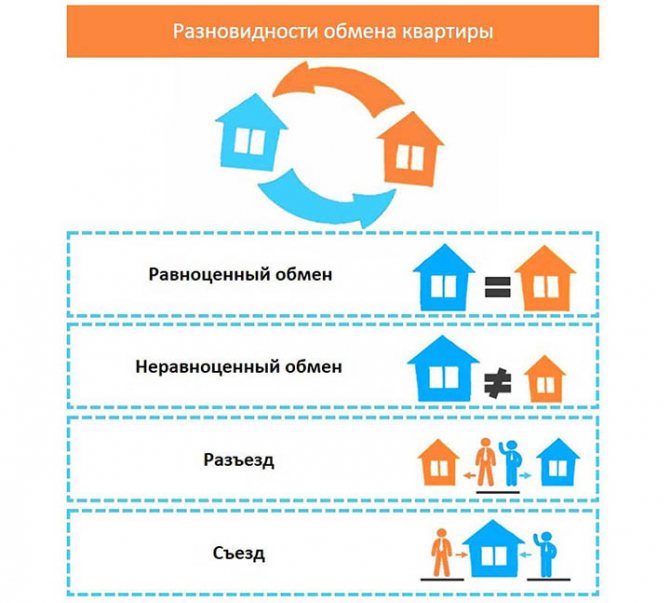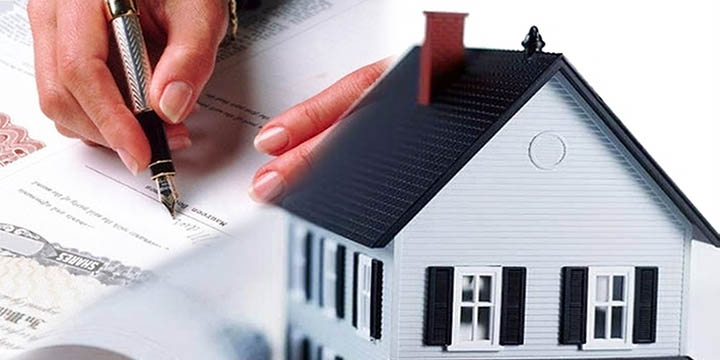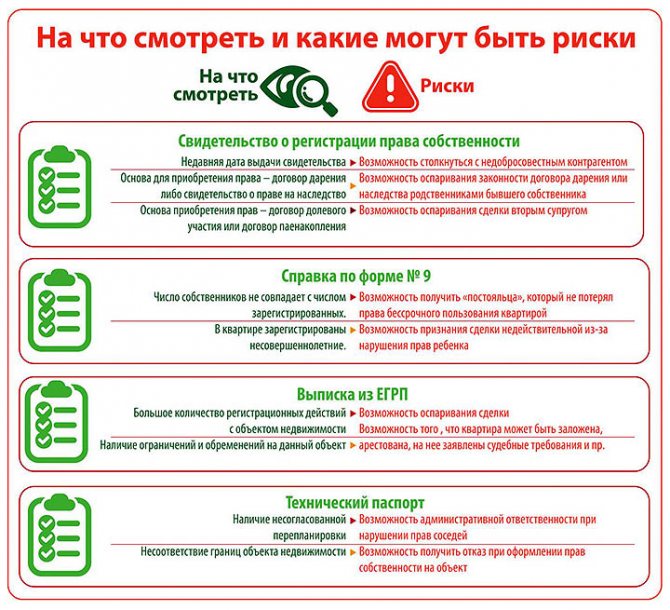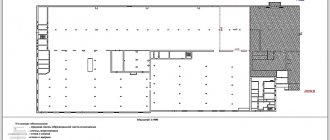Legal nuances of real estate exchange
The rights and obligations of citizens when making real estate exchange transactions are regulated by Article 31 of the Civil Code of the Russian Federation.
Without going into details, according to the law, one owner transfers his property to another, and he, for his part, provides him with his property. Next, all papers are reissued, and mutual settlements are made if necessary.
There are two types of exchange:
- Equal . When the assessed value of both properties is the same;
- Unequal . When the price of one property is less than another.
In an unequal transaction, both parties agree among themselves on the amount of additional payment for the property. The conditions and procedure for the mutual exchange of property are formalized through an agreement, which is certified by a notary. This ensures that all agreements specified in the agreement are respected.

How to change an apartment to a house? Main stages of exchange
The law does not provide for any strict rules and procedures for the exchange of real estate. The parties themselves can agree on the procedure for the transaction; they can conduct it in person or remotely. There are no restrictions on the amount of additional payments in case of an unequal exchange - the parties agree on this themselves (only it is necessary to specify the amount of the additional payment in the contract).
The process of exchanging an apartment for a house includes several stages:
Property valuation
Owners are advised to first obtain an independent appraisal of their property.

To do this, you should contact an appraiser. They can professionally assess the current wear and condition of objects, their location, pros and cons, and surrounding infrastructure. Based on the data obtained, the market value of housing is determined.
Exchange of an apartment for a house - exchange mechanism
The concept of improving your home can differ significantly. There is a huge difference between urban and suburban housing. Different levels of comfort in buildings also imply different approaches to choosing real estate.
It should be remembered that a good house, where the price can be equivalent to an apartment, is house construction from the 70s or 80s. A flat plot of at least five acres, high ceilings, all communications, durable wall material, the presence of a store, schools and transport stops within walking distance - all these nuances must be taken into account when choosing an exchange object.
- The first method is an exchange agreement. Private housing construction can only be exchanged for privatized premises. Such an agreement is subject to the same tax as a purchase and sale transaction. That is, if the property is owned for less than 3 three years, then PDKHN arises.
- Sales and purchase agreement (alternative transaction). The option of exchanging an apartment for housing carries minimal risk, since if the transaction is declared invalid, the participant in the transaction remains with the property without losing a significant amount of money. This is precisely the main argument for the barter agreement. In fact, it is very difficult to find an exchange that would be equally acceptable to all contracting parties. Therefore, in the real estate market there is a scheme for the simultaneous sale and purchase of an apartment and a house. Transactions are usually prepared for one day.
What documents will owners need?
To conclude an agreement to exchange an apartment for a house (and vice versa), you need to prepare the following package of documents:
- Documents confirming ownership of real estate: certificate, USRN extract, purchase and sale agreement or inheritance or gift agreement;
- Extracts from the BTI and from the passport office;
- Consent (permission) of the husband/wife to complete the transaction and waiver of claims to the property from other residents;
- Cadastral passport;
- Home Book;
- Passport;
- An extract from the housing office (or homeowners' association, management company, SNT) about the absence of debt for utility services;
- Documents for land ownership, cadastral passport;
- The act of surveying a land plot.
All documents must be provided in originals. Next, copies are made of them and certified by a notary.

Step-by-step process for exchanging a house for an apartment
If you don’t understand at all how to arrange an exchange of a house for an apartment, then the following instructions will help with this:
Step 1. Purpose of the exchange
Before you start looking for a suitable apartment, you should understand why you should exchange a house . For example, if the house itself is small and the owner wants more space, then he will need to consider options for larger apartments.
Step 2. Study the real estate market, search for an applicant
It is important to monitor the real estate market to understand who is ready to exchange a house for an apartment and at what price. You can analyze advertisements on the Internet and in newspapers .
Next, you should place an ad about exchanging real estate, for example, on Avito.
At this stage, it is also important to evaluate your home and the home of the second party to the transaction . For this, the best option is to contact appraisers.
An expert will help you set the correct market price based on the year the property was built, the internal condition of the house/apartment, etc.
Step 3. Preparing the necessary documents
Once the ad is posted, it's time to start collecting the necessary documents . The sooner this point is fulfilled, the better it will be, since then one party to the transaction will not have to wait for the second party to prepare any documents.
Step 4. Completing the deal
The contract for exchanging a house for an apartment is drawn up in writing. The contract must include all essential terms:
- full names of the parties,
- subject of the transaction,
- estimated value of apartments and houses,
- cost of house/apartment,
- exchange option – equal or unequal,
- amount of additional payment (if the property is of unequal value),
- signatures of the parties.
Step 5. Registration of the transaction
A completed and signed exchange agreement is subject to mandatory registration with Rosreestr. Documents can be submitted either directly to the Registration Chamber or to the MFC.
Step 6. Receive statements
After a successful transaction registration procedure, the parties to the agreement will be issued new extracts confirming ownership of the house/apartment.
Required documents
The package of documents for concluding an exchange agreement is no different from the package of documents that is required when concluding a purchase and sale transaction:
- civil passports of the parties to the transaction;
- title documents for the house/apartment (sale and purchase agreement, donation agreement, document on the right of inheritance);
- extracts from the Unified State Register of Real Estate confirming ownership of the house/apartment;
- cadastral passports with explication and floor plan;
- certificates of absence of debt for utility services;
- receipt of payment of the state duty for registering the transaction in Rosreestr.
This is a basic package of documents, which can be supplemented with other documents, such as:
- written consent of the spouse to complete the transaction (if the property was acquired during marriage);
- notarized consent of the other half to carry out a transaction to exchange a house for an apartment;
- consent from the guardianship authorities if the property belongs to a minor.
Subtleties of real estate exchange and pitfalls
From a legal point of view, an exchange agreement differs from a purchase and sale agreement. First of all, when exchanging real estate, both participants simultaneously have the status of Seller and Buyer. But that's not all:
- If the price of each object is not specified in the document, then the exchange is considered equal. (be careful - many owners did not take this point into account and fell into a “trap”);
- The housing becomes the property of another owner only if all clauses of the contract are observed, the deed is signed and the state registration of ownership of both objects is completed in Rosreestr (thus the law “insures” the owners against fraudulent schemes - when one buyer has already received the property, but the second has not yet );
- In addition to signing the Act on the execution of the exchange, the parties also need to sign another Act confirming the execution of the counter transaction if the other party wants to transfer the property later (Article 328 of the Civil Code of the Russian Federation);
- If, according to a court decision, the exchange agreement was executed incorrectly, or the exchange was made without the consent of one of the owners, then such a transaction is declared invalid. And the property is returned to its original owners;
- When making an unequal exchange with an additional payment (which happens quite often when deciding to exchange an apartment for a house), the owner of the house is required to pay income tax of 13% on the profit received. In case of an equivalent exchange, there is no need to pay tax;
- As already mentioned, when the rights to private houses are transferred, the rights to the land plot are automatically transferred. Here it is important for the apartment owner, even before signing the exchange agreement, to check whether the previous owner has violated the laws on the development of plots (according to its category and purpose). Otherwise, there is a risk of losing invested funds and land.

Transaction costs
Unlike ordinary purchase and sale transactions, during real estate exchange transactions, owners incur additional costs:
- If the area of one or both objects is more than 100 square meters. m, then a state duty is charged - 0.5% of the cost of a more expensive object;
- If the object is changed twice in a year, the amount of the duty becomes even higher - and you need to pay up to 2.5% of the cost;
- If the housing area is less than 100 sq. m., and this is the first housing exchange transaction of the year, then you do not need to pay a fee;
- Expenses for notary services;
- Income tax (if the transaction is unequal) - in the amount of 13% of the profit.
All costs of paying fees and notary services are borne by both participants in the process.
Terms of the exchange agreement
The exchange agreement is concluded between the homeowners. The agreement stipulates all rights and obligations of the parties regarding the receipt of additional payments and the transfer of exchanged residential real estate. An exchange agreement differs from a similar purchase and sale agreement mainly in the terms of payment between the parties. If the exchange agreement is not drawn up for residential properties of equal value, then the text specifies the specific amount of the surcharge and the procedure and terms of settlement of the parties to the exchange. Otherwise, the provisions of the exchange agreement are almost identical to the sale agreement.
The text of the exchange agreement must indicate the shortcomings of the residential properties being exchanged or state that there are no shortcomings. The text of the agreement also includes provisions on the absence of claims of third parties and encumbrances. Since a private house is changing, the contract specifies information about the plot of land on which it is located.
As with the purchase and sale, homeowners stipulate the technical characteristics of the objects transferred in exchange: living space, number of floors, number of rooms and other characteristics of the housing.
The next important point of the exchange agreement is the cost of the real estate being exchanged. Since the exchange of housing is carried out with an additional payment, the terms of the exchange agreement reflect the cost of both the house and the apartment, as well as the amount of the additional payment. You can make an adequate assessment of the market value of the housing being exchanged by contacting specialists.
In addition to the above conditions, the exchange agreement may also include other obligations of the parties, for example, regarding the timing of vacating housing (simultaneously or alternately), transferring agreed upon pieces of furniture to the new owner along with the property, and other obligations.
Determination of the cadastral value of real estate using the cadastral number of Rosreestr
Legal features of the land exchange agreement
How to get a mortgage using maternity capital
Procedure for removing real estate from cadastral registration
Sample lease agreement for a land plot with the right to purchase
Subsidy for improvement of living conditions
How to draw up a contract correctly?
A real estate exchange agreement must be drawn up only in writing. It is important to do this correctly, otherwise the agreement will be invalidated and the deal will be cancelled.
The document must indicate the following points:
- Date and place of the transaction;
- Information about the owners - full name, registration address;
- Information about real estate objects participating in the exchange - location, number of floors, entrance number, number of rooms, infrastructure facilities located nearby, etc.;
- Information confirming the ownership of housing;
- The amount of additional payment that must be made by the owner whose property is cheaper;
- Consequences of breaking the deal;
- Force majeure;
- The preferred method of resolving disputes in case of non-compliance with the terms of the agreement by one of the parties (court, arbitration, out-of-court procedure);
- Personal signatures of the parties;
- Signature of the notary certifying the contract.
After signing the agreement, each party receives two notarized copies of the agreement. One of which is subsequently submitted for registration to Rosreestr.

How does the exchange procedure work?
Typically, real estate transactions are conducted through purchase and sale agreements. The peculiarity of the case (an apartment with a house is exchanged) is in the documentation, when 2 sales and purchase agreements are used as a title document
. In one of them, the seller will be the owner of the apartment, and the buyer will be the owner of the house, in the other, they will switch places. That is, there will be a simultaneous purchase (not exchange) by the parties to the contract of the real estate of interest.
The exchange procedure for apartment owners consists of the following steps:
- Selection of a country house with the necessary conditions for living.
- Obtaining verbal consent to the transaction from its owner.
- Collecting a package of documents for the apartment.
- Checking the documentation for the house provided by its owner.
- Drawing up contracts with a notary with the terms and conditions.
- Signing contracts.
- Registration with a government agency (Rosreestr).
After passing state registration, the exchanging parties receive certificates and become the legal owners of the new home.
Cases when an exchange transaction may be canceled (not take place)
According to the Civil Code, there are a number of cases when it is impossible to exchange real estate:
- The barter agreement was declared invalid in court;
- One of the owners was sued;
- If a building or living space is considered unsafe, it is demolished;
- If the property has official status or is a dormitory;
- If a participant in the transaction was expelled from the housing cooperative.
If there is at least one of the violations described above, the contract will be declared invalid. And it will be cancelled, and all data in Rosreestr regarding real estate rights will return to the previous owners.









